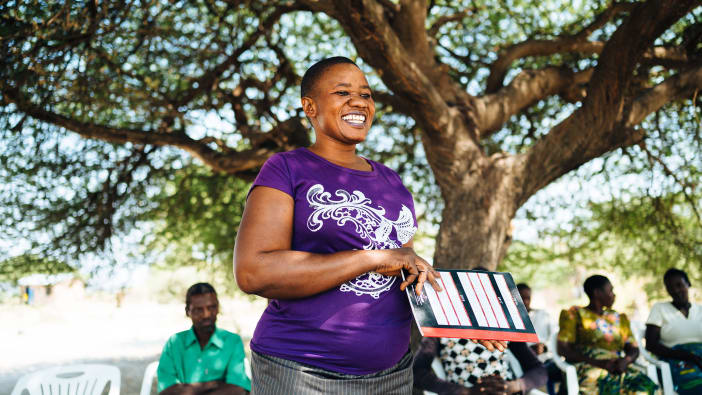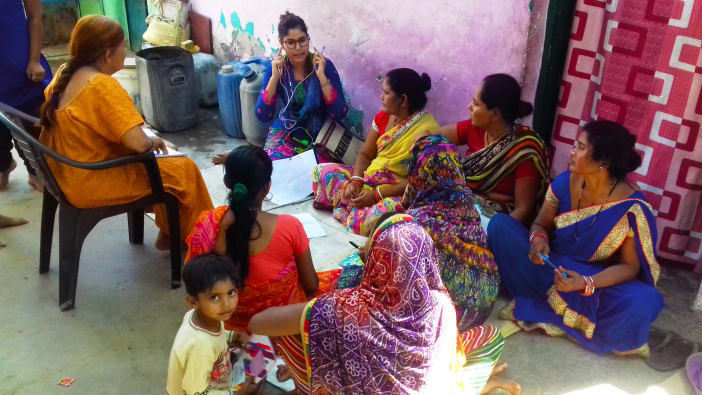Paz y Esperanza (Peace and Hope) is a Christian organisation in Peru that promotes social justice by defending the human rights of individuals and communities that are marginalised, or have no access to justice. Peace and Hope believes that because all people are created in the image of God, everyone has an equal worth. This must be defended and promoted. All people should therefore have equal rights, but often this is not a reality for those who are poor. Access to justice through the formal legal system can be difficult for poor people for many reasons:
- lack of economic resources
- corruption
- bureaucracy
- geographic isolation
- limited education and literacy
- lack of awareness of human rights
- lack of knowledge of how to use these rights within the system
- lack of understanding of official language
- fear and lack of trust in the justice system.
Poverty is not the only barrier to equality. There are many examples of injustice in our society. The legal system often treats people differently according to their social status, or whether they are men or women. The Bible presents another way of seeing life. God gives equal value and attention to all people – men, women and children, of all races and social groups. This equality and respect for differences should under lie all social relationships.
Systems and inequality
However, people experience the world in very different and often unequal ways. The situation of indigenous people in Peru is particularly difficult as they constantly suffer racial and social discrimination from the legal system and the State.
Children often have little access to legal justice. There are not enough officials trained to investigate child abuse crimes, or enough care centres and resources to help children at risk.
Sexual discrimination can also be seen, for example in the negative behaviour of the police and people within the legal system towards women who approach them for help. This gender inequality is reflected across society, as generally our culture tolerates domestic violence. We must not close our eyes to such injustice.
Peace and Hope provides legal, pastoral and psychological support for victims of violence within the family, particularly women and children.
Justice for all
The work of Peace and Hope is based on the biblical concept of justice. We understand this to mean making human rights possible for all, as well as restoring good relationships between God, his people and creation. We believe that biblical justice demands the defence of the poor, as they are at a disadvantage and often defenceless in society. Working for justice means building a society which affirms the rights and responsibilities of all people.
Peace and Hope works to help change institutions and legal systems that go against human rights. In this way it hopes to improve the administration of justice in Peru.
It is important that justice is defended and promoted nationally through the creation or reform of laws. But we need to go further than this – the laws must actually be respected in practice or they are meaningless. Peace and Hope also help educate communities about their rights. We empower them to be able to take action to challenge unjust systems and practices in the State and to lobby for their rights.
In our advocacy work we use public campaigns, education and research.
We work through networks, with the media, and by lobbying authorities directly. We educate people within the legal and social systems about human rights issues.
Peace and Hope also offers free legal help for people or communities who are victims of human rights abuse, to make sure that they have good quality legal representation.
We work to increase access to justice within poor communities by increasing their access to information, giving them a voice in local government and making sure the legal system is accountable and accessible to all.
Alfonso Wieland is Executive Director of Peace and Hope.
Asociacion Paz y Esperanza, Jr. Hermilio Valdizan 681, Jesus Maria, Lima, Peru
Email: [email protected]
Ruth Alvarado is a lawyer who has worked with Peace and Hope. She is Director of Tearfund partner Agape.
Email: [email protected]
Case study: Rosa’s story
In many areas of Peru, children born outside marriage may remain without a surname if the father denies paternity. This causes serious problems later, making it difficult for the child to be enrolled in school or have access to the funds that a father should legally provide. In addition, when such children come of age they cannot get an identity card and are therefore excluded from the rights and responsibilities of citizenship.
One of the people Peace and Hope has supported is Rosa Ayala. She is a single mother aged 38 who lives in the Alto Mayo region of Peru. She brought charges against the father of her youngest son so that he might have his father’s surname. Rosa received legal, spiritual and emotional support from Peace and Hope. With Rosa’s agreement, Peace and Hope used the case to raise public awareness about this issue through local media.
Finally, Rosa won her case. Her son, Pedro, now has his father’s surname and legal status. The case set a new legal example in the Alto Mayo region, since it was the first to be won without requiring a DNA examination. In an interview, Rosa said: ‘The lawyers I hired before did nothing at all. My ex-husband talked with them and paid them off. After that they took his side. When I came to Peace and Hope, I knew that people had rights, but I did not know how to claim them for myself. It was very hard for me to expose myself to the media and to talk about my situation and say things in front of others that concerned my private life. I am grateful to God for all that now.’









